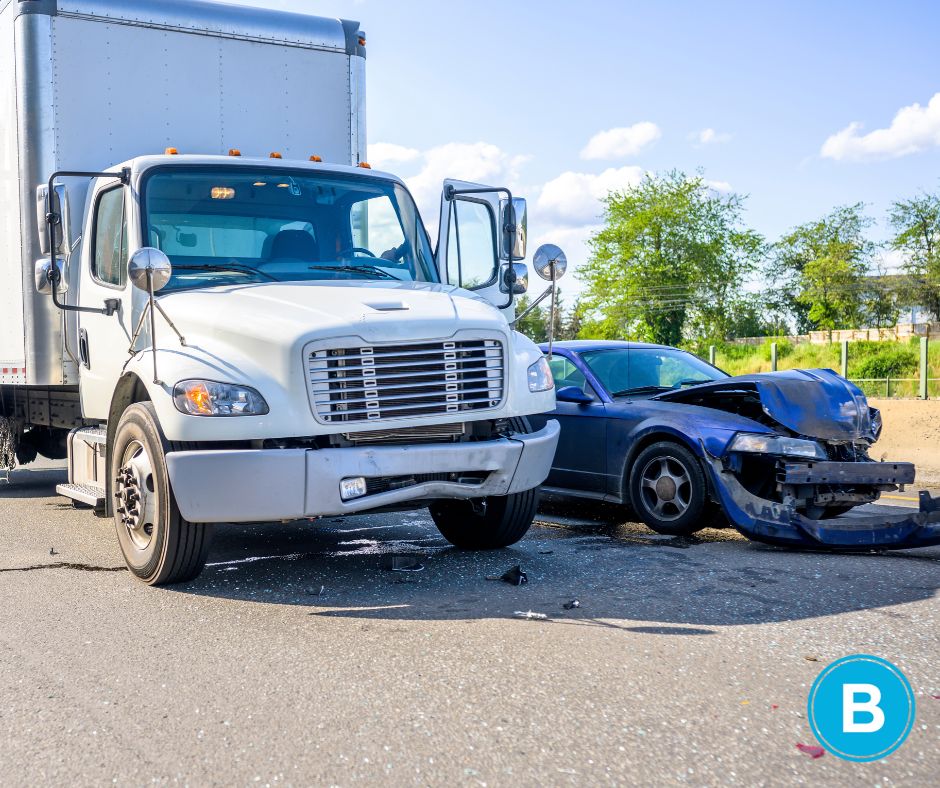
If you spend any amount of time on Florida’s highways, you are familiar with the fear of driving around semi-trucks. Why are these trucks so scary, and what makes them more dangerous than other vehicles? There are a variety of factors that play into the stigma of accidents with semi-trucks, but most of them are related to size.
Big Trucks Have A Bigger Impact
When considering accidents with semi trucks, size is a major factor. 18-wheelers can weigh over 75,000 lbs, while the average consumer vehicle weighs in at only 4,000 lbs. That is a huge discrepancy, and the weight difference means a collision between a semi and a passenger car is often catastrophic. Common accidents involving semi trucks and commercial vehicles include:
Rear-end accident with a semi-truck
Large trucks don’t have the ability to stop on a dime or change directly easily. They require as much as 40% more stopping distance, depending on speed. If you suddenly cut in front of a semi and then slow down, or if you slam on your brakes, you are at risk of being hit from behind. Because of the force, rear-end collisions by a semi-truck can be devastating.
Collision from the side
Semis have gigantic blind spots, leaving you and your car practically invisible from certain angles. On average, truck drivers can’t see the first 20 feet in front of their bumper or anything within 30 feet of the back of their rig. Drivers are unable to see large areas along each side…especially on the right. If you’re stuck driving near a semi-truck, don’t stay on the sides. Stay at least 30 feet behind until you can safely pass.
Under ride accidents
Because of their height, semi trucks are often involved in under ride accidents. This is when another vehicle hits the truck from behind, going up underneath the rear bumper and, sometimes, under the truck entirely. This type of accident frequently proves fatal, especially on trucks without preventative measures in place. Many times, the entire front portion of the car is crushed.
Even fellow semis can be subject to this kind of accident, as one unfortunate driver in Jacksonville, FL found out recently. A 35-year-old driver from Clermont pulled his semi over into the grassy median (the gore) after suspecting a tire issue. Around 9 PM as the Clermont driver attempted to re-enter the highway, another semi, driven by a 53-year-old Hialeah man, clipped the rear of the truck after attempting to avoid the collision. Due to the force, the second semi went partially underneath the first truck. The Hialeah driver received serious injuries, even though his vehicle and the semi he hit were closely matched in size.
What else makes semi trucks so dangerous?
In addition to size, large commercial trucks bring a long list of additional risks to the road. Some of the most notable reasons semi-truck accidents occur on Tampa’s highways are:

What causes accidents with semi trucks?
- Driver fatigue due to long hours
- Mechanical failures (specifically tires and/or brakes)
- Lack of proper training for drivers
- Distracted driving
- Dangerous weather conditions (primarily wind and rain)
Common sense and simple preparation could prevent many of these accidents. Taking time to rest, stopping to eat, staying hydrated, and putting down mobile devices while behind the wheel are all important for commercial drivers.
However, some of the aforementioned risks are out of a driver’s control. That’s where you come in.
How can I protect myself from semi-truck collisions?
As you drive around Tampa, prepare to encounter many commercial vehicles. 18-wheelers are a common sight as they deliver goods throughout the state of Florida each day. While there are no guarantees when on the road, paying attention is the best way to prevent accidents with semi-trucks. In heavy traffic, plan ahead and don’t make sudden moves. This is especially true in rainy and/or windy weather. Not only do trucks struggle to stop over short distances, but they are more susceptible to sliding on wet roads. Limited visibility is another concern during rainy weather, so be sure to allow plenty of room when you plan to pass!
If you notice a semi-truck experiencing a suspected mechanical problem (tire blowout, smoking brakes, etc.) slow down and give them plenty of space. They might be unable to stop and you don’t want to be in the way of an out-of-control truck.
What happens if I am injured after an accident with a semi-truck?
Injuries stemming from an accident with a semi-truck are often catastrophic, including:
- traumatic brain injuries
- whiplash
- spinal injuries
- internal injuries
These debilitating injuries prevent victims from working, caring for their families, or even leaving home. The team at Brooks Law Group brings years of experience to the table, fighting for the justice and compensation victims and their families deserve. We are available 24 hours a day, 7 days a week, so you never go without help when you need it most. We work on a contingency fee basis, meaning you don’t pay unless we win your case. Our free consultations give you a chance to discuss your situation with our team and learn more about our services.
If you experience an accident with a semi-truck, don’t take on the fight alone. Look to Brooks.













